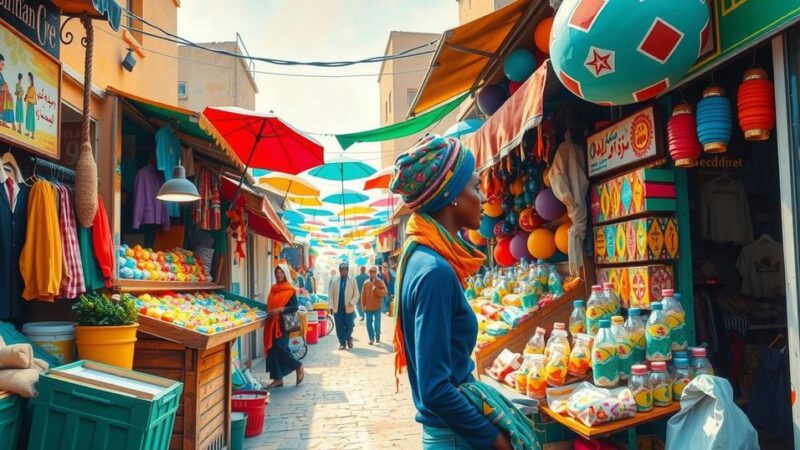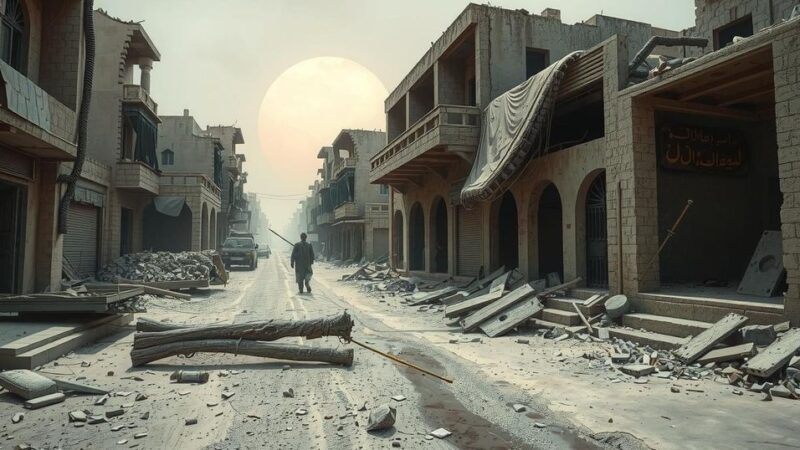The article discusses the limitations of South Sudan’s opposition groups, emphasizing their fragmentation and inability to unify for national progress. It critiques their reliance on personal ambitions, the lack of a credible political agenda, and the influence of the ruling regime. The necessity for strong, visionary leadership and international support for political transitions toward democracy is highlighted as crucial for a unified South Sudan.
Autocratic regimes often witness internal revolts or are overthrown by a united opposition. However, such a phenomenon appears unlikely in South Sudan due to the dominance of family ties and a closed leadership circle within the government. Internal conflict, when it does arise, tends to revolve around personal wealth or local interests rather than a comprehensive political vision. The lack of political literacy among leaders and the absence of robust institutions hinder any revolutionary change; a successful uprising would require a stronger sense of national consciousness, which is currently lacking among the populace.
In regimes like South Sudan’s, real political change relies heavily on a credible, unified opposition, particularly when internal revolts seem implausible. Unfortunately, opposition groups in South Sudan have failed to fulfill this role, remaining divided and often co-opted by the regime. Their inability to present a cohesive national agenda and mobilize the citizenry undermines their potential to effectively challenge the ruling elite, thereby ensuring the continuation of the current government.
President Kiir and his inner circle utilize strategies such as manipulation and resource control to maintain power. Conversely, many opposition parties appear to exist primarily as extensions of the regime, focused on personal enrichment rather than fostering resilience against it. These groups often fracture due to individual ambitions and lack a comprehensive approach to addressing the core issues of conflict, which impedes their effectiveness.
The opposition in South Sudan frequently manifests as temporary entities that emerge during peace negotiations but disintegrate quickly under pressure. Instead of offering a strategic alternative, they remain fixated on personal grievances and local issues, illustrating the very failings of the government they oppose. Historical rivalries continue to influence their internal dynamics, promoting power struggles that reduce overall credibility and public trust.
Many opposition entities exist nominally, struggling to engage meaningfully with the communities they represent. Their disconnect from ordinary citizens exacerbates instability, as their actions often reflect personal ambitions rather than genuine representation of public interests. Fostering inclusive dialogues and addressing real concerns are crucial yet neglected areas for these groups, reinforcing their ineffective political presence.
The opposition groups’ tendency to form weak coalitions that ultimately collapse erodes their credibility. Rather than offering a legitimate alternative, they often replicate the patronage and opportunism characteristic of the regime. Their failure to construct vital institutions capable of supporting peaceful governance hinders progress toward sustainable peace and national cohesion.
Despite these challenges, there is potential for opposition groups to unify under a common vision that transcends individual ambitions and historical grievances. By collectively embracing a future focused on stability, dignity, and prosperity, they could foster a renewed sense of national identity. This necessitates a vision that encourages collaboration among diverse communities, helping to overcome factional disputes.
Achieving such unity requires bold and patriotic leadership that prioritizes national interests over personal gains and ethnic loyalties. By engaging with grassroots movements and developing a cohesive vision for the future, leaders can counteract the divisiveness that has historically hindered progress. This could lead to a united and hopeful South Sudan if supported both regionally and internationally.
The ongoing division among opposition groups risks prolonging the authoritarian regime’s grip on power. The essential question arises: will these groups prioritize factional disagreements, or will they unite for the greater good of the nation? The historical lesson shows that united opposition can lead to marked change, but this transformation requires investment from international stakeholders in political development and democratic institutions.
Historical precedents from countries such as Mozambique and El Salvador illustrate the crucial role of political parties in ensuring democratic transitions. The transformation of former combatant groups into effective political entities demonstrates the importance of dedicated support from the international community, thus promoting lasting stability. In South Sudan, the lack of such enduring political foundations hampers prospects for democratic growth, emphasizing the need for structured investments in political party development.
The support for civic movements like the People’s Coalition for Civil Action (PCCA) is paramount for creating a viable and pluralistic political environment in South Sudan. As demonstrated in various nations, civic movements can be instrumental in harnessing grassroots mobilization toward democracy. However, South Sudanese political entities require a greater focus on building a competitive political landscape to reduce military dominance and empower citizens politically.
Dr. Remember Miamingi, a South Sudanese expert, emphasizes that without deliberate investment in political party development and civic movements, South Sudan risks perpetuating cycles of ineffective governance and oppression. A strong, pluralistic political framework is vital for achieving a peaceful and democratic transition in the country.
The article elucidates the challenges faced by opposition groups in South Sudan, highlighting their fragmentation and the prevailing influence of personal ambitions over collective goals. Despite the potential for unification towards a common national vision, the current political landscape remains weak due to the lack of cohesive leadership and adequate support from the international community. Building a robust political infrastructure is essential for promoting democratic transitions and addressing the underlying issues of conflict in South Sudan.
Original Source: www.radiotamazuj.org






